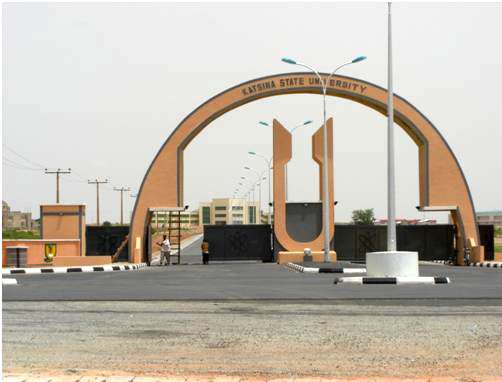Tension has gripped Umaru Musa Yar’adua University (UMYU), Katsina State, as academic and non-academic staff members have embarked on a two-week warning strike to protest what they described as the persistent neglect of their welfare and poor conditions within Nigeria’s public universities.
The industrial action, declared after a joint congress meeting of in-house unions, marks yet another chapter in the prolonged standoff between university workers and the federal government over unresolved labour issues.
According to the local branch of the Academic Staff Union of Universities (ASUU) and other allied unions in the institution, the strike is in full compliance with the national directive issued by their parent bodies. This directive was aimed at pressuring the government to fulfill its long-standing commitments regarding staff welfare, improved funding, and better working conditions.
Background: Years of Broken Promises and Lingering Frustrations
The latest warning strike did not come as a surprise to many observers of Nigeria’s education sector. For years, the federal government and university unions have been locked in recurring cycles of negotiations, failed agreements, and industrial actions.
University workers across the country have consistently decried the non-implementation of previous agreements, unpaid earned academic allowances, delayed promotions, and the underfunding of tertiary institutions.
Despite numerous rounds of discussions and memoranda signed with the government, many of these promises have either been abandoned or only partially fulfilled. The UMYU staff, like their counterparts in other universities, claim they are left with no option but to resume industrial action to draw attention to their grievances.
Inside UMYU: Total Compliance with Strike Directive
Reports from within Umaru Musa Yar’adua University confirm that the strike order is being strictly adhered to. The local branch of ASUU, led by its chairman, Dr. Murtala Abdullahi, stated that all academic and administrative activities have been suspended indefinitely.
Lecture halls are empty, offices are locked, and campus operations have come to a halt as both teaching and non-teaching staff join the strike in solidarity. Students, particularly those preparing for examinations, have expressed frustration and uncertainty over the disruption of their academic calendar.
Some students were seen leaving the campus following the announcement, fearing the strike could be extended if the federal government fails to meet the workers’ demands.
Demands of the Unions: What the Workers Want
At the heart of the current dispute are several key issues that the unions insist must be addressed immediately. These include:
- Payment of outstanding earned academic and non-academic allowances.
- Full implementation of previous agreements reached with the federal government.
- Improved funding of Nigerian universities to enhance teaching, research, and infrastructure.
- Review of salary structures to reflect the current economic realities in the country.
- Respect for collective bargaining agreements and proper treatment of university staff across all cadres.
According to the unions, these are not new demands but rather items that have appeared repeatedly in past negotiations without tangible progress.
National Context: UMYU Not Alone
The action by UMYU workers is part of a nationwide wave of discontent sweeping through Nigerian universities. The national body of ASUU had earlier declared a two-week warning strike, with several universities already complying across the country.
Institutions in states such as Lagos, Kwara, Enugu, and Rivers have also suspended academic activities in solidarity with the national action. The move is intended to serve as a warning to the federal government that failure to act promptly could lead to a total and indefinite strike that would completely shut down the public university system.
Other unions, including the Senior Staff Association of Nigerian Universities (SSANU), the Non-Academic Staff Union (NASU), and the National Association of Academic Technologists (NAAT), have also hinted at joining future coordinated actions if their respective grievances remain unaddressed.



